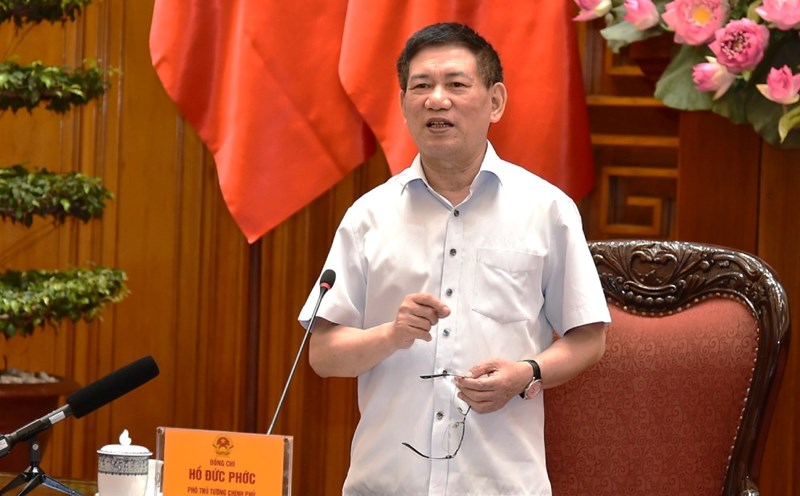At the Workshop "Upgrading the stock market, expanding capital mobilization channels for the economy" organized by Lao Dong Newspaper in coordination with the Ministry of Finance, reporters from Tuoi Tre Newspaper raised a series of questions about the development of goods on the stock market, as well as the situation of issuing stocks to the public for the first time (IPO).
The reporter raised the issue: "For the market to develop sustainably, it is necessary to increase output and quality of goods. Is the reason for the lack of goods due to strict regulations, or due to market factors? What is the current number of businesses promoting IPO? And how to bring goods from large enterprises to the market in the context that many enterprises have not been able to list? ".
Comply with regulations, link IPO with listing
Responding to the above question, Ms. Pham Thi Thuy Linh - Head of the Stock Market Development Department, State Securities Commission (SSC) said: "Current listing of enterprises must comply with legal regulations. In the past, the State Securities Commission has also added regulations to shorten processes and procedures, helping businesses to be listed immediately after IPO".

Ms. Linh said that this is the main solution that businesses are also looking forward to, when there are IPO rounds, the listing process will be faster. This solution will aim to promote businesses to implement IPO activities associated with listing.
Regarding the state capital divestment to increase the amount of goods in the market, the representative of the State Securities Commission said that this is also a practical solution in the current period. Because in reality, there are many listed enterprises in the market but the State holdings rate is at a high level. "The reduction of state capital for enterprises so that investors can participate in the capital structure of enterprises is also a measure that we will focus on in the coming period," said Ms. Linh.
Integrating IPO and listing processes to shorten liquidity

Adding additional opinions on the above two issues, Mr. Bui Hoang Hai - Vice Chairman of the State Securities Commission shared that currently, legal regulations on IPO have been complete and complete. From the first legal bases of the stock market such as Decree 48 from the 2000s, since then, all legal regulations on IPO have been increasingly improved according to international standards. The conditions related to IPO have been almost stable for many years, in line with international practices. For example, the requirements for businesses to have interest, have financial reports for audit... Regarding legal regulations, the Vice Chairman of the State Securities Commission emphasized that there seems to be no problems.
However, previously, the IPO and capital listing process was separate, making it impossible for investors' cash flow to circulate immediately after the IPO, reducing attraction. Therefore, the State Securities Commission has amended Decree 155 to integrate these two processes, helping investors to trade stocks within 1-2 weeks after IPO.
Mr. Bui Hoang Hai said that the State Securities Commission is reviewing regulations to increase the attractiveness of IPO activities. Currently, after IPO, stocks are considered "not listed", leading to many domestic and foreign investment funds being restricted to invest in these types of stocks. Therefore, in many cases, IPOs do not attract capital from investment funds.
Integrating two processes between IPO and listing is also one of the solutions to increase the attractiveness of IPO, increase the attractiveness of IPO.
"Currently, the State Securities Commission has studied and proposed amending legal regulations related to the fund, including considering solutions for investment funds to expand investment limits in un listed stocks" - Mr. Hai added.
Market conditions are still a key factor
According to the representative of the State Securities Commission, the number of IPO enterprises in recent times has decreased due to many factors.
First, market conditions are not really favorable. According to international analysis and organizations, the risk-on profit ratio when investing in emerging markets is not a developed market that is trending lower than large markets. Therefore, capital allocated to frontier markets and emerging markets has decreased compared to the previous period.
Second, countries are implementing monetary tightening policies, causing interest rates on the US dollar and foreign currencies to be very high, reducing the attractiveness of IPOs in emerging market countries. In addition, one of the reasons affecting the number of IPOs is geopolitical instability in some countries and regions. Even the US tariff policy creates many risks in the market, directly affecting the success of LPIs.
Regarding the issue of state capital divestment, Mr. Hai said that this is a policy under the general policy of the Government. Currently, in many large enterprises such as banks, the state ownership ratio is still high.
"These are important enterprises, but they do not necessarily have to keep the state ownership ratio high," said Mr. Hai. "In the coming time, as a state management agency, we will have solutions to promote the more effective implementation of bringing quality state-owned stocks to the market".












